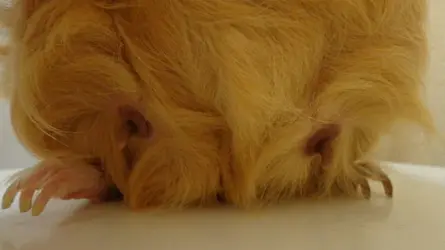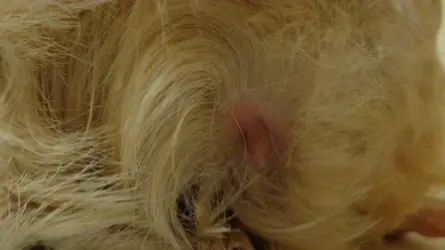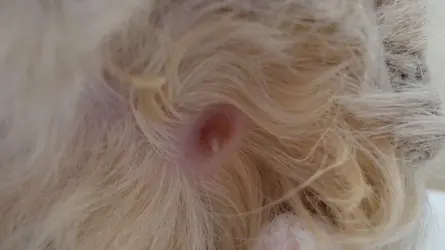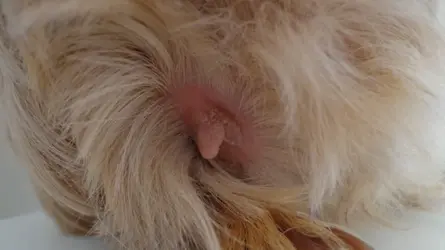Dilly's Piggies
Teenage Guinea Pig
3 months ago now my sow Harriet was spayed due to ovarian cysts, she was 9 months old when she started showing symptoms and was spayed at 13 months old. 1 month ago her full sister Lottie started behaving extremely hormonal and today I have noticed enlarged nipples, when I first saw this with Harriet it took 1-2 weeks for the crust to develop around the nipple so I am keeping a very close eye on Lottie and checking her nipples every day, the moment I see crust I am going straight to Simon to have her spayed too.
This is just odd to me, Harriet was so young to have this and now her sister too, I wondered if this was a genetic problem and their Mum will also develop it. I do also own their Mother, I got her pregnant from a breeder and she gave birth to Lottie and Harriet here with me, Mum got pregnant at 6 months old and gave birth at 8 months old, she has always been an aggressive pig towards others, only tolerating her babies, and she also bites me, I wonder if this is related as Harriet was exactly the same, since being spayed Harriet is so much better in all aspects of life. The Mother (Tizzie) also has very large nipples, but I put it down to her previously having babies, but is it normal for them to be this big for so long? It has been 14 months since she gave birth, from what I've been told this was her first litter and obviously her last as I'm against breeding. Is it possible being pregnant delayed the onset of ovarian cysts?
At the moment I have one pig that was just cured of all her problems and two others going at each other now that look like they have it too!
So my main questions are:
Are ovarian cysts genetic?
Is it normal for Mother piggies to have large nipples?
Can ovarian cysts be delayed by pregnancy?
Do the nipples enlarge when a sow is in season?
How long are Guinea Pigs in season and how often?
Mum Tizzie's nipples that are enormous...

Daughter Lottie's nipples that have tripled in size over the last month...

How Lottie's nipples looked normally, before the hormonal behaviour and nipple enlargement...

Daughter and sister Harriet who was diagnosed with ovarian cysts and successfully spayed (you can see enlargement and crust)

This is just odd to me, Harriet was so young to have this and now her sister too, I wondered if this was a genetic problem and their Mum will also develop it. I do also own their Mother, I got her pregnant from a breeder and she gave birth to Lottie and Harriet here with me, Mum got pregnant at 6 months old and gave birth at 8 months old, she has always been an aggressive pig towards others, only tolerating her babies, and she also bites me, I wonder if this is related as Harriet was exactly the same, since being spayed Harriet is so much better in all aspects of life. The Mother (Tizzie) also has very large nipples, but I put it down to her previously having babies, but is it normal for them to be this big for so long? It has been 14 months since she gave birth, from what I've been told this was her first litter and obviously her last as I'm against breeding. Is it possible being pregnant delayed the onset of ovarian cysts?
At the moment I have one pig that was just cured of all her problems and two others going at each other now that look like they have it too!
So my main questions are:
Are ovarian cysts genetic?
Is it normal for Mother piggies to have large nipples?
Can ovarian cysts be delayed by pregnancy?
Do the nipples enlarge when a sow is in season?
How long are Guinea Pigs in season and how often?
Mum Tizzie's nipples that are enormous...

Daughter Lottie's nipples that have tripled in size over the last month...

How Lottie's nipples looked normally, before the hormonal behaviour and nipple enlargement...

Daughter and sister Harriet who was diagnosed with ovarian cysts and successfully spayed (you can see enlargement and crust)
